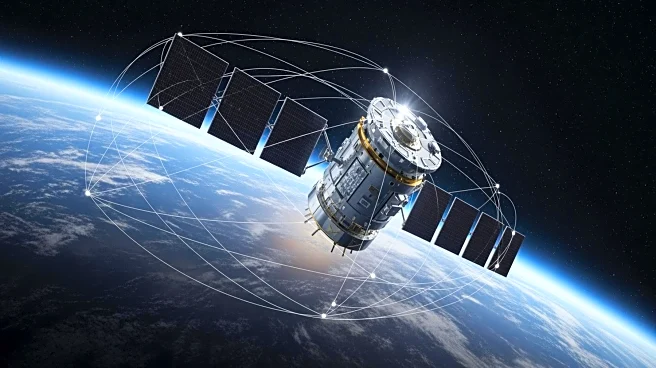What's Happening?
The US State Department has expressed concerns over the proposed EU Space Act, highlighting potential negative impacts on collaboration and innovation between the US and Europe. The department's comments
suggest that the act could create a hostile environment for further cooperation, particularly affecting the startup ecosystem. The proposed regulations may introduce non-tariff barriers that could hinder bilateral projects and affect areas such as space weather, remote sensing, and space exploration. The State Department emphasized that these regulations should not apply to US businesses operating in Europe or launching European payloads from the US.
Why It's Important?
The criticism from the US State Department underscores the potential impact of the EU Space Act on international space industry collaboration. If enacted, the regulations could impose significant compliance costs, particularly on smaller companies and startups that drive innovation in the space sector. This could lead to forum shopping, where operators seek authorization in countries with less stringent regulations. The act's implications for space exploration, safety, and debris mitigation could affect global efforts in these areas, potentially stifling innovation and collaboration.
What's Next?
The ongoing debate over the EU Space Act may lead to further discussions between US and European stakeholders to address the concerns raised. The State Department's comments could influence revisions to the proposed legislation, aiming to balance regulatory oversight with the need to foster innovation and collaboration. European industry leaders may continue to voice their concerns, potentially leading to adjustments in the act to accommodate international partnerships and reduce regulatory burdens.
Beyond the Headlines
The EU Space Act's potential to create barriers highlights broader issues in international regulatory frameworks for space activities. The act's focus on environmental-footprint reviews and life-cycle analyses reflects growing concerns about sustainability in space operations. This development may prompt discussions on harmonizing regulations across countries to support global space initiatives while addressing environmental and safety concerns.









